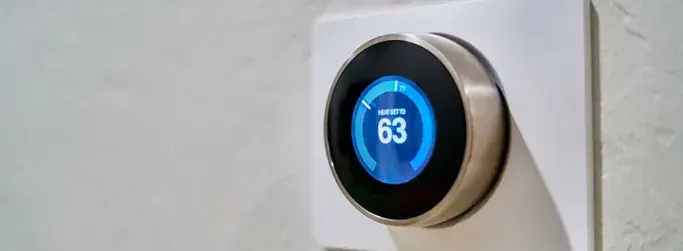

The Internet of Things, also known as IoT, is the idea of connecting any device to the internet or another device. Almost all of the appliances and tools we use daily are in some way connected to the Internet of Things; examples include refrigerators, fitness devices, smart locks, Amazon Alexa, Roomba vacuum cleaners, Apple Watches, and more. These electronic devices fall into the category of IoT because they connect through high-speed internet to help provide us with important information or save us time and energy.
Here are some ways the Internet of Things can impact our daily lives.
In the Home
Nowadays, you can turn lights on and off, set your home alarm, and start your car all with the click of a button on your cell phone. You can even keep an eye on your mischievous pet while you’re not home using Furbo and know exactly when your package was delivered with Ring’s smart doorbell. So many aspects of our homes are already connected together through a single device – imagine what’s next!
Your Health
We now have devices that can track sleeping patterns, heart rate, exercise programs and more. These devices then sync together with high-speed internet, using analytics to identify trends and correlations. Over the past couple of years, we’ve seen this technology advance through contact tracing, which sends alerts to those who may have come into contact with Covid-19 using location and device data.
This technology is now being taken to the next level, starting with concepts such as telehealth so healthcare providers can monitor key health vitals electronically – from miles away. This technology both improves convenience for patients and reduces healthcare costs. As connectivity advances and we continue to see improvements in high-speed internet, the advancements to the way we monitor our health are limitless.
Sustainability
The Internet of Things can greatly impact our role in sustainability. For example, devices like Google’s Nest thermostat learn and adapt to your preferred temperature, monitor the temperature in each room of your house for energy savings, and automatically go into energy saving mode when it senses that you’ve left the house.
Another energy-saving home appliance is the smart fridge, which learns your fridge opening habits and maximizes efficiency by adjusting the interior temperature. This next generation of refrigerators also connects with your cellular device, using high-speed internet to remotely alert you when the door has been left open and allow you to adjust the temperature straight from your phone.
The Internet of Things (IoT) will continue to greatly impact our daily lives -- sharing data between the devices we interact with every day allows us to work smarter, live more efficiently, and gain complete control over our lives. Go here for more information on how IoT devices could impact your Hughesnet data usage.



